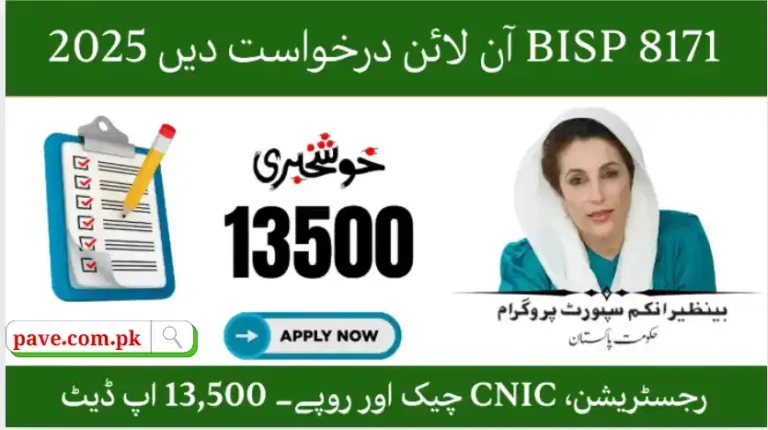IMF Review Mission Arrives in Pakistan for $7 Billion Program
IMF Review Mission Arrives in Pakistan for $7 Billion Program. Pakistan’s fragile economy has once again entered a crucial stage as the International Monetary Fund (IMF) review mission landed in Karachi instead of Islamabad to assess progress on the ongoing $7 billion bailout program, highlighting the importance of direct engagement with the State Bank of Pakistan (SBP) in the early phase of consultations.
The visit is being closely watched by policymakers, businesses, and global investors alike, since the IMF’s report will directly determine the release of the next tranche of financial assistance to Pakistan.
Red Also: Punjab Launches CM E-Taxi Scheme 2025
Why the IMF Visit Matters Now?
Pakistan’s economic position in 2025 is marked by both opportunity and challenge. On one hand, the country has seen a rebound in remittances and some stability in exports. On the other hand, it is battling:
- Persistent fiscal deficits
- High inflationary pressures
- Debt servicing constraints
- Rising energy import bills
- Fallout from natural disasters, especially the recent floods
Against this backdrop, the IMF’s review mission is not merely routine — it is a decisive moment for the continuity of Pakistan’s financial lifeline.
Beginning of Technical Negotiations?
The IMF mission will spend the next two weeks in Pakistan, conducting detailed technical talks with the State Bank and other key financial institutions. These discussions will revolve around:
- Monetary policy measures and their impact on inflation
- Exchange rate stability and management of foreign reserves
- Government revenue generation, tax reforms, and subsidies
- Energy sector reforms, particularly circular debt
- The impact of climate-related disasters on fiscal planning
Sources confirm that the release of the next IMF tranche under the $7 billion program will be conditional upon the mission’s final assessment report.
Red Also: Maryam Nawaz Appreciates Suzuki’s Support Suzuki Flood Relief Fund
Karachi as the Chosen Venue?
Traditionally, IMF delegations hold talks in Islamabad, the federal capital. This time, however, the decision to begin consultations in Karachi signals a stronger focus on monetary and financial stability rather than just fiscal policy. Karachi hosts the State Bank headquarters, Pakistan Stock Exchange, and major commercial banks — making it the financial nerve center of the country.
Check Also: Suzuki Donates Rs 30 Million for Punjab Flood Relief
IMF’s Core Concerns?
The IMF team will closely examine:
- Flood Impact on Economy – The devastating floods of recent months have not only displaced millions but also disrupted agricultural productivity, raised food prices, and placed an additional burden on the national budget.
- Budget Deficit Targets – Pakistan’s ability to meet fiscal targets remains in question. The IMF will review whether the government’s new revenue collection efforts are sufficient or if additional taxation measures will be required.
- External Financing Needs – With debt repayments looming, IMF will assess whether Pakistan has lined up enough external financing beyond IMF inflows, such as from friendly nations and multilateral lenders.
- Structural Reforms – IMF’s emphasis has always been on sustainable reforms, including energy pricing, tax base widening, and reducing subsidies that distort the economy.
Link Between IMF Review and Loan Disbursement?
The most critical aspect of the IMF visit is its link to the next tranche of the bailout package. Without a positive review, Pakistan may face delays in receiving much-needed funds, further straining foreign exchange reserves and putting downward pressure on the rupee.
Experts warn that any slippage in commitments — particularly on fiscal discipline and energy sector reforms — could risk stalling the program.
Broader Economic Context in 2025?
Pakistan is currently struggling with multiple economic headwinds:
- Inflation remains stubbornly high, largely driven by food and fuel prices.
- Unemployment continues to rise as industries face high production costs.
- Export competitiveness remains weak due to structural bottlenecks.
- Foreign reserves hover at fragile levels, barely covering a few months of imports.
In such a scenario, IMF inflows provide not only liquidity but also unlock support from other international partners.
The Political Dimension?
Beyond economics, the IMF program carries political implications. Governments in Pakistan often find themselves balancing between implementing IMF’s tough conditions and addressing public anger over rising prices and taxes.
With upcoming provincial and local elections, the political leadership faces pressure to show economic relief while still adhering to IMF’s reform agenda.
Market Reaction?
Financial markets have responded with cautious optimism to the IMF’s arrival. The Pakistani rupee stabilized slightly in anticipation of the review, while the stock exchange witnessed mild gains. However, investors remain wary until a formal staff-level agreement is reached.
Potential Outcomes of the Review?
There are three likely scenarios following the IMF’s two-week review:
- Positive Assessment – Pakistan receives the next tranche, improving reserves and stabilizing markets.
- Conditional Approval – IMF grants funds but requires additional upfront measures such as tax hikes or energy price adjustments.
- Delayed Disbursement – IMF withholds funds until Pakistan fulfills pending commitments, leading to further market volatility.
Looking Ahead?
The IMF’s review mission is not just about approving the next loan payment — it is a test of Pakistan’s long-term economic governance. If reforms are delayed or diluted, Pakistan risks staying trapped in a cycle of recurring bailouts. Conversely, a credible commitment to reforms could gradually rebuild investor confidence and place the country on a path to sustainable growth.
Conclusion IMF Review Mission Arrives in Pakistan for $7 Billion Program?
IMF Review Mission Arrives in Pakistan for $7 Billion Program As the IMF mission begins its technical talks in Karachi, all eyes are on the outcomes of the next two weeks. The stakes are high: a positive report could unlock billions in desperately needed funds, while a negative assessment could plunge Pakistan deeper into financial uncertainty.
This review, therefore, represents not just a routine IMF evaluation, but a defining moment for Pakistan’s economic future in 2025.







